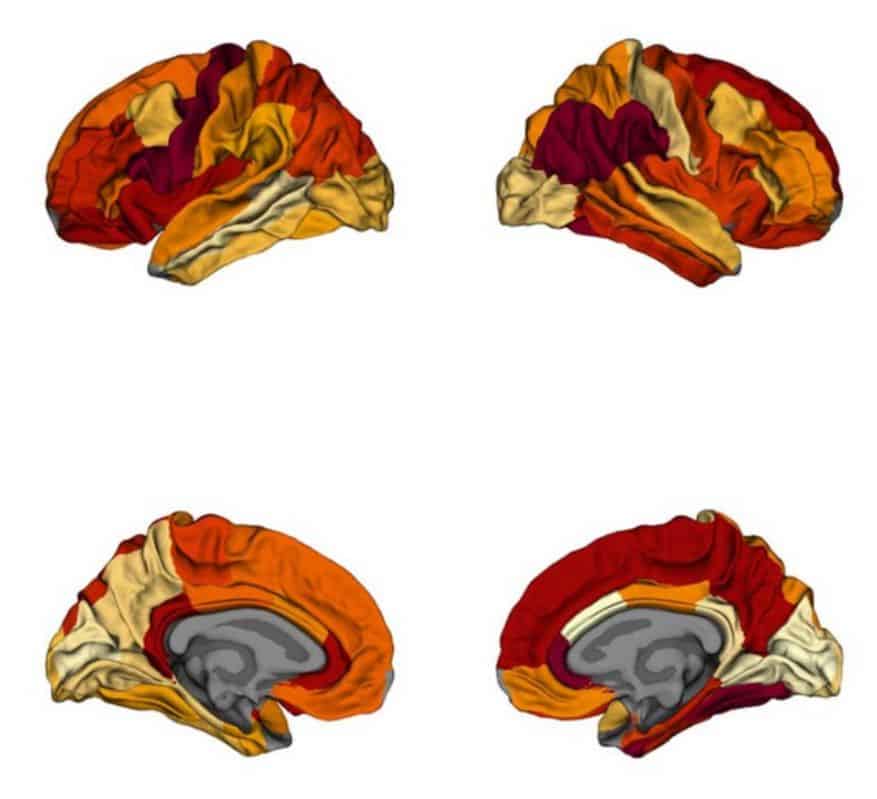Creeping midlife weight gain can play a role in the development of Alzheimer’s and dementia, a new study published today in the journal of Alzheimer s Disease concludes.
Previous studies have found a link between obesity and Alzheimer’s disease (AD)-related abnormalities, such as damage to the cerebrovascular system and the buildup of amyloid-beta. However, no study has yet directly compared the patterns of brain shrinkage in AD and obesity.
The study investigated the patterns of grey matter atrophy that occur in obesity and Alzheimer’s disease using a sample size of over 1,300 people. They generated maps of grey matter atrophy for each group, comparing AD patients with healthy controls, obese people with non-obese people, and those with and without obesity.
They found that grey matter cortical thinning was caused by both obesity and AD in the same ways. For instance, both groups showed equal levels of thinning in the left prefrontal cortex and the right temporo-parietal cortex. Neurodegeneration may be indicated by cortical thinning. This implies that obesity may result in the same kind of neurodegeneration as AD patients.
More and more evidence suggests that obesity is a disease that impacts several body systems, including the respiratory, gastrointestinal, and cardiovascular. This study was published in the Journal of Alzheimer’s Disease on January 31, 2022. It shows that obesity may play a role in the development of Alzheimer’s disease and dementia.

“Our study strengthens previous literature pointing to obesity as a significant factor in AD by showing that cortical thinning might be one of the potential risk mechanisms,” remarks first author Filip Morys. “Our results highlight the importance of decreasing weight in obese and overweight individuals in mid-life, to decrease the subsequent risk of neurodegeneration and dementia.”
Source: 10.3233/JAD-220535
Image Credit: Getty
